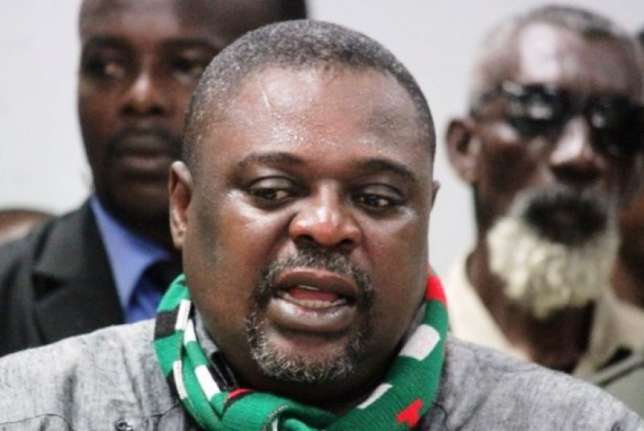
Spokesperson for the 2016 presidential candidate of the New Patriotic Party (NPP), Mustapha Hamid says Nana Addo Dankwa Akufo-Addo’s ‘One-village-one-dam’ policy is tailored towards eliminating poverty from the three northern regions.
To that effect, he wants Ghanaians to embrace the concept and vote massively for the opposition leader to enable him implement the policy for the betterment of the country.
“We need facilities that will help the people to collect rainwater whenever it rains for future use on their farms such that when the raining season is over there would be much water for farming purposes. This will help deal with the continuous migration of people from the North to the South to look for non-existing jobs. So the practical solution to get out from poverty is needed over here,” he noted.
Speaking in an interview with Fiifi Banson on Anopa Kasapa on Kasapa 102.5 FM on Tuesday, Hamid who is also a lecturer at the University of Cape Coast said the hullabaloo being made by the governing National Democratic Congress (NDC) about the viability of the policy should cease, stressing that it was about time the country gets serious and lifts her people from poverty.
Akufo-Addo while addressing the Bolgatanga Traditional Council on Sunday promised to construct dams in each of the villages spread across the three northern regions to boost farming should he win the December 7 Presidential elections.
“As far as this part of our world is concerned, I want to go further and talk about one-village-one-dam,” he said.
The one-village-one-dam, according to Akufo-Addo, is a policy to help Ghana become self-sufficient in food production and even become an exporter of food to the sub-region.
Ever since his pronouncement, some national executives of the NDC have criticized him for copy-cutting President John Dramani Mahama’s initiative while others also believe the ambitious policy is non-practicable.
“It is like whatever good thing the NDC is doing, the NPP candidate [Nana Akufo-Addo] has devised a strategy to say that I will also do it. The one-village-one-dam is not possible. It is just part of his promise galore. Where on earth will he get the source of water from? Are we going to get the water from rainfall or the streams that have dried up? So, Nana Addo’s promise is not practicable,”he noted the National Organizer and Campaign Coordinator of the NDC, Kofi Adams.
He added “We [NDC] have district industrialization project and he [Akufo-Addo] will go and stand there and say one-village-one-dam. Government is already pursuing this project for the people. And the main idea is to do a bigger dam that if powered will supply water to so many communities at a time. As we speak, SADA is working on the Pwalugu dam and when completed it will supply water to more than 100,000 hectares of land. Where will be the source of water for the one-village-one dam project? You don’t have to do multiples of dams. What the NDC is doing is to construct a bigger dam to supply water to more communities.”
A deputy General Secretary of the NDC, Koku Anyidoho who also commented on the policy in an interview with Banson said the explanation given by the followers of the NPP with regard to the one-village-one-dam policy is not too clear to enable the public analyze it very well and make informed decision.
According to him, the NPP keeps shifting the goal post, stressing that at one point the party says it will construct dams in each of the villages across the three northern regions while at another point “they said they will construct boreholes as dams for the people.”
But Hamid responding to the criticisms said his boss is focused in providing practical solutions that will lift the people from poverty.
“We have to get serious in this country. Irrigation facilities include boreholes in some places. Go to Mauritius, you will drive eleven kilometers and you will see sugar cane plantations left right and they have constructed boreholes and connected them with pipeline facilities to irrigate the farm. So, the point that I was making was that irrigation facilities include dugout, include rivers, include streams, lakes and all types of water systems that are used to irrigate the farm.”



